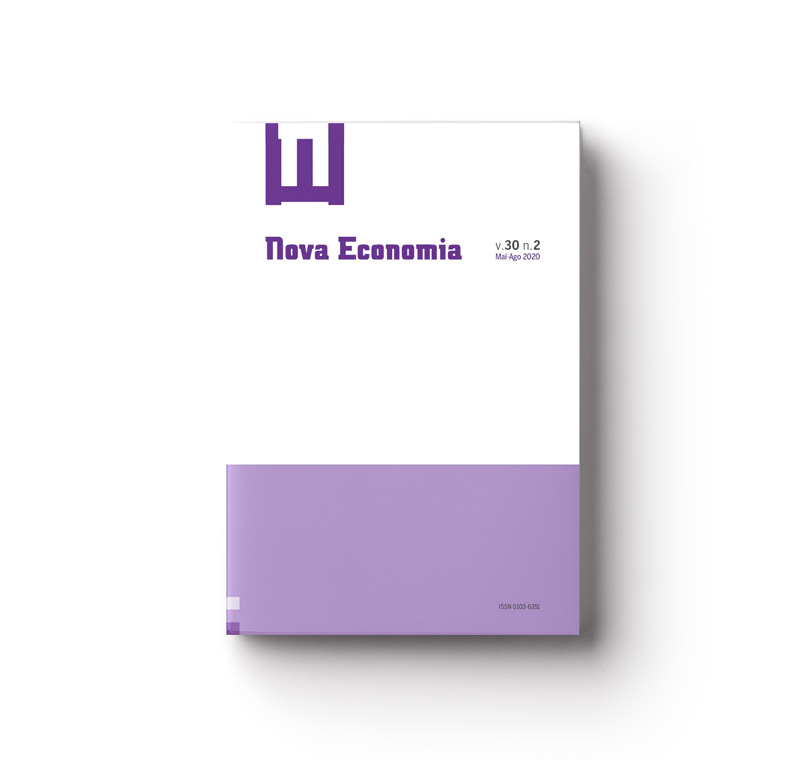Convergence clubs and catching up drivers in Brazilian municipalities 2000-2010
Keywords:
Crescimento, convergência regional, catching-up, Brasil, municípios, clubes de convergênciaAbstract
This paper aims to analyze the process of growth convergence between 2000 and 2010 using two neoclassical models: intra-club β-convergence and inter-clubs β-catching-up. Both models estimate parameters with endogenized residue using a set of variables related to technological drivers. The intra-club β-convergence model determines the convergence clubs among municipalities. The inter-clubs β-catching-up model estimates the change in convergence probability between each club and the following upper one. The more relevant results are: (i) there is a process of convergence among municipalities in clubes; (ii) there is a process of divergence between clubs; (iii) the main variables that explain the probability of a club to catch the upper one are the technological drivers. That result means that, as long as the higher technological capability concentrates in the most advanced municipalities, the economic inequalities originated by technology gaps trend to remain.
Downloads
Published
How to Cite
Issue
Section
License
Copyright (c) 2020 Sergiany da Silva Lima, Ana Urraca Ruiz

This work is licensed under a Creative Commons Attribution 4.0 International License.
Authors who publish with this journal agree to the following terms:
- Authors retain copyright and grant the journal right of first publication with the work simultaneously licensed under a Creative Commons Attribution 4.0 International License that allows others to share the work with an acknowledgement of the work's authorship and initial publication in this journal.
- Authors are able to enter into separate, additional contractual arrangements for the non-exclusive distribution of the journal's published version of the work (e.g., post it to an institutional repository or publish it in a book), with an acknowledgement of its initial publication in this journal.
- Authors are permitted and encouraged to post their work online (e.g., in institutional repositories or on their website) prior to and during the submission process, as it can lead to productive exchanges, as well as earlier and greater citation of published work (See The Effect of Open Access).




